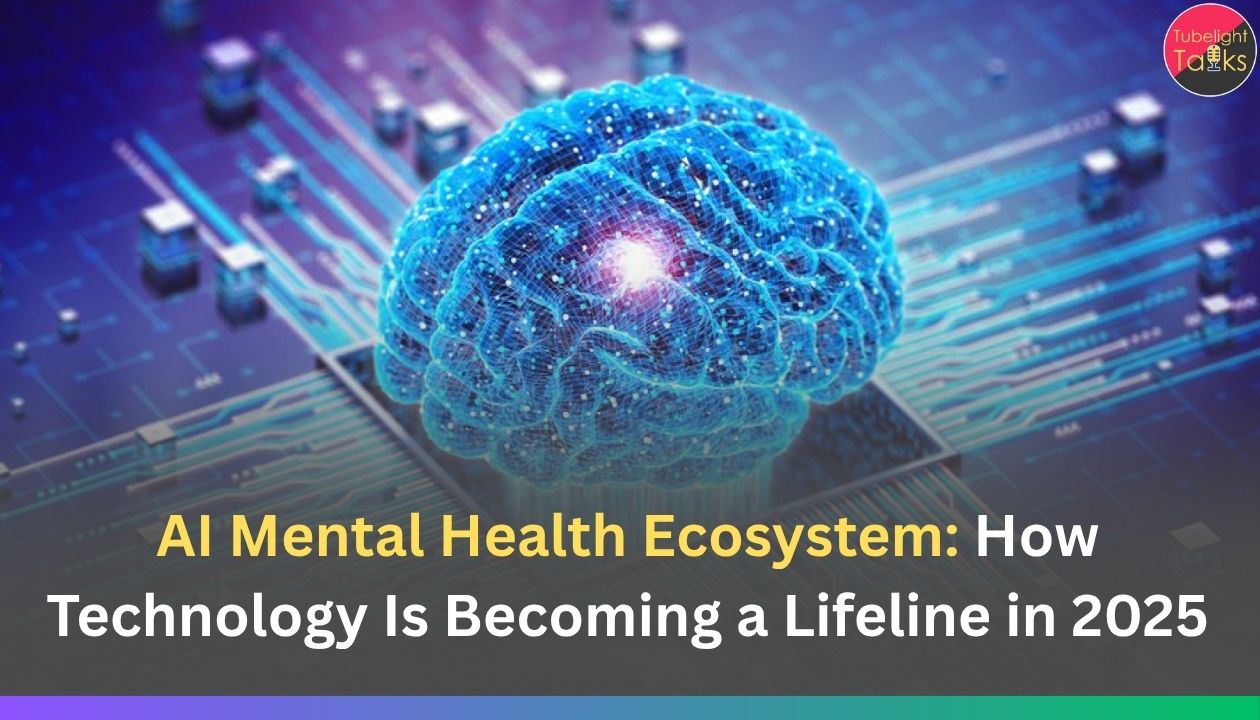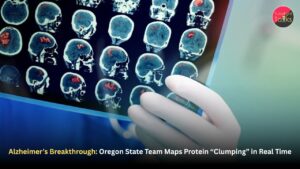AI Mental Health Ecosystem: How Technology Is Becoming a Lifeline in 2025
AI Mental Health Ecosystem: The world in 2025 looks very different when it comes to mental health. Once treated as a private struggle, mental well-being has now become a global conversation. Rising stress, digital burnout, anxiety disorders, unpredictable work culture, loneliness, and emotional exhaustion have pushed societies to search for faster, more accessible support systems.
This is where the AI-powered mental health ecosystem has emerged as a powerful companion. What started as simple meditation apps or motivational reminders has evolved into an intelligent, interconnected digital support system capable of understanding, tracking, and responding to emotional needs in real time. It is not here to replace human therapists but to fill the massive gap between daily emotional challenges and long-term mental care.
This ecosystem promises something that human support systems cannot always provide: instant availability, non-judgmental listening, continuous monitoring, and personalized guidance. Let’s explore how this ecosystem works and why millions are now relying on it.
Why the World Needed an AI Mental Health Ecosystem
Mental health issues accelerated drastically in the last decade. People began experiencing:
- Constant work pressure
- Anxiety from social media
- Loneliness due to digital lifestyles
- Relationship stress
- Emotional burnout
Many individuals cannot find timely help because human systems are overloaded. Therapists are expensive, appointments are limited, and not everyone feels comfortable opening up to friends or family.
People needed a form of support that is:
- Always available
- Always listening
- Unbiased
- Confidential
- Emotionally stable
AI became that bridge between emotional distress and immediate support.
What Is an AI-Powered Mental Health Ecosystem?
It is an advanced digital network of tools, powered by artificial intelligence, designed to support emotional wellness. This ecosystem includes:
- AI chat companions
- Emotion detection models
- Mood analysis through wearables
- Personalized therapy programs
- Stress forecasting algorithms
- Virtual therapy platforms
- Crisis detection systems
These tools work through chat, voice, mobile apps, wearables, smart devices, and integrated digital platforms. Together, they create a complete emotional well-being environment that stays with a person throughout the day.
How AI Supports Mental Well-being
1. AI Emotional Companions
These AI companions are designed to:
- Listen empathetically
- Offer emotional comfort
- Provide calming responses
- Suggest coping techniques
- Prevent emotional spiraling
Many people use them:
- At night when they can’t sleep
- During an anxiety attack
- After a stressful meeting
- When they feel lonely
- When they need someone to talk to but no one is available
Even though AI cannot feel emotions, it is trained to respond with compassion and understanding, making users feel safe and heard.
2. Mood Analysis Through Wearables
Smartwatches, fitness bands, and even smart earbuds can now track:
- Heart rate patterns
- Stress fluctuations
- Sleep quality
- Breathing changes
- Physical indicators of anxiety
AI studies this data to detect:
- Rising stress levels
- Predictable mood dips
- Possible burnout
- Behavioral changes
It warns users before the emotional collapse happens. Human beings cannot always track these subtle changes, but AI can.
3. Personalized Therapy Programs
AI creates tailored wellness strategies by learning patterns such as:
- What triggers stress
- Which situations increase anxiety
- What improves the mood
- How a person behaves during emotional lows
These programs evolve over time and adjust as the user’s emotional journey changes.
4. Crisis Detection and Immediate Support
Some AI systems can identify signs of:
- Panic
- Severe anxiety
- Emotional breakdown
- Self-harm thoughts
- Immediate distress
The system then takes action by:
- Offering calming techniques
- Connecting users to mental health helplines
- Alerting emergency contacts (with consent)
- Activating grounding exercises
This feature has already prevented thousands of potential crises worldwide.
5. AI Support for Therapists
AI enhances real-world therapy by:
- Tracking mood progress
- Highlighting harmful behavioral patterns
- Suggesting therapy tools
- Noting signs of distress
- Summarizing emotional trends
Therapists can provide more accurate guidance because they receive continuous emotional data between sessions.
Why People Feel Emotionally Safe With AI
Despite being non-human, AI offers something many people crave:
- It does not judge
- It does not criticize
- It does not get irritated
- It does not interrupt
- It does not compare
- It does not shame
Its emotional stability, consistency, and confidentiality make people feel understood, supported, and valued.
Concerns and Limitations
However, this ecosystem is not perfect.
1. Emotional dependency
Some individuals may rely too heavily on AI for validation.
2. Privacy concerns
Sensitive emotional data must be protected.
3. Risk of generalised advice
AI may misinterpret unique emotional contexts.
4. Lack of true human empathy
AI can simulate empathy but cannot genuinely feel emotions.
5. Ethical concerns
Questions about boundaries, responsibility, and emotional influence remain under debate.
The Future of AI Mental Health Support
The AI mental health ecosystem will continue to evolve. In the future, we may see:
- AI emotional coaches
- Mood-responsive smart homes
- Virtual therapy worlds
- AI-guided support communities
- Emotion-aware robots
- Digital wellness ecosystems integrated into daily environments
The goal is simple: to make emotional support accessible to every person, every hour of the day.
AI Powered Mental Health is Support Sytem
The AI-powered mental health ecosystem is not a replacement for human interaction. Instead, it is a powerful support system that helps people navigate emotional challenges in an increasingly stressful world. It provides comfort, guidance, and stability during moments when human help is unavailable.
Mental health is not a privilege; it is a necessity. And in 2025, AI is finally helping individuals understand, manage, and heal their emotional struggles with compassion and intelligence.
Read Also: How AI Is Transforming Healthcare in India: A 2025 Revolution
FAQs: AI Mental Health Ecosystem
1. What is an AI mental health ecosystem?
It is a digital system using AI tools like emotional companions, mood trackers, crisis detectors, and therapy programs to support mental well-being.
2. Can AI replace human therapists?
No. AI supports therapists but cannot replace human empathy, clinical expertise, or deep emotional understanding.
3. Is AI safe for emotional support?
Yes, as long as users depend on it responsibly and maintain a balance with real human interaction.
4. How do wearables help in mental health?
Wearables track stress levels, sleep patterns, heart rate, and other indicators that help predict emotional issues before they escalate.
5. What are the concerns related to AI in mental health?
Privacy issues, emotional dependency, inaccurate advice, and ethical challenges are the major concerns worldwide.











Discussion (0)